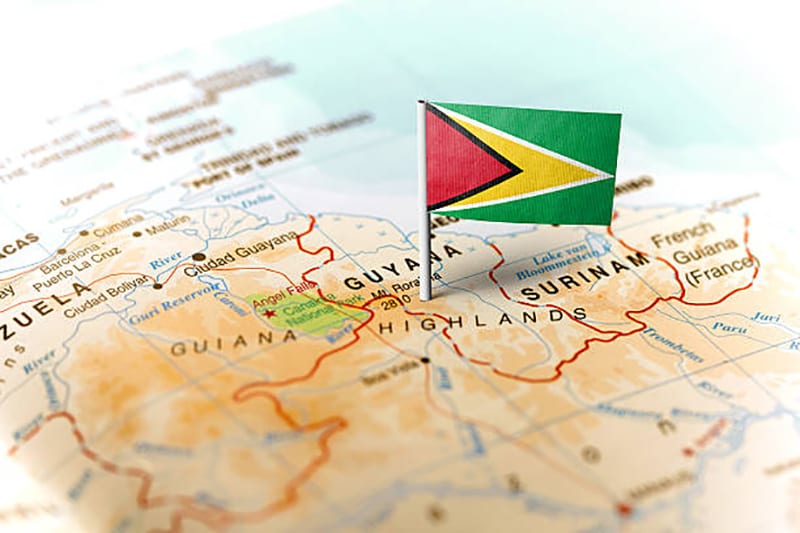Guyana’s Vice President, Dr. Bharrat Jagdeo recently highlighted the complexities and challenges surrounding oil block auctions, cautioning that the industry is not a guaranteed ‘gold mine’ as perceived by some critics. At a press engagement last week, the official said this lesson was reinforced following the successful completion of the country’s maiden licensing round.
The chief policymaker for the sector said bids that were received for eight of the 14 blocks on offer, indeed mark a tremendous success for the government, but also signal how competitive the environment is.
“You have to understand that you are competing with other countries that have great prospects and they want the investment in their countries too. They are prepared to have those investments go to them by lowering the government’s take,” the Vice President said. In fact, the official said some countries are even willing to lower the government’s take to outcompete other nations.
Ali, Jagdeo see response to Guyana’s first bid round as favourable, given new fiscal terms | OilNOW
The Vice President also noted that the auction is a salient reminder of the financial risks involved. He reasoned that companies would have to weigh the chances of going into a prospective area, expending millions, and not scoring big. He reminded of the case with Spanish explorer Repsol which told government it invested US$500 million into the Kanuku block but did not make a commercial find during its 10-year hold on the concession. That block was returned to the State in May 2023.
“If this was so wonderful and easy, we would have had about 100 bids because we have a gold mine here but you have to understand this is a risky venture. People study these things carefully,” expressed the official.
In addition to the risks involved, the Vice President explained that there are other external factors that will continue to put a further strain on attracting massive investment. In this regard, he noted that the decarbonisation movement will make it harder for oil companies to secure financing for fossil fuel-related activities. He also noted that the government has to be prepared for sudden policy changes that could hamper investments. In this regard, he reminded of the Joe Biden administration which had said it would not support further investments in fossil fuel.
The official said, “When we talk about accelerating (oil production) it sounds crude, but you have to get ahead of that curve.” He pointed out that because growth in global demand for energy is outstripping the introduction of renewables, there is still room for hydrocarbons.
“But we recognise that there might come a time, like when the Biden administration said it won’t support any investment in [the] fossil fuel industry, and you may get back to that, so you have to lock in investments early. Companies that come further down the road may have a harder time,” he said.
While the industry is foreseen to face increasing challenges and a myriad of unknowns, the Vice President assured that Guyanese authorities intend to be proactive and are already doing so with their approach to accelerating oil activities. He said the Guyana government will continue to accelerate production while being cautious and thorough in its licensing process.



